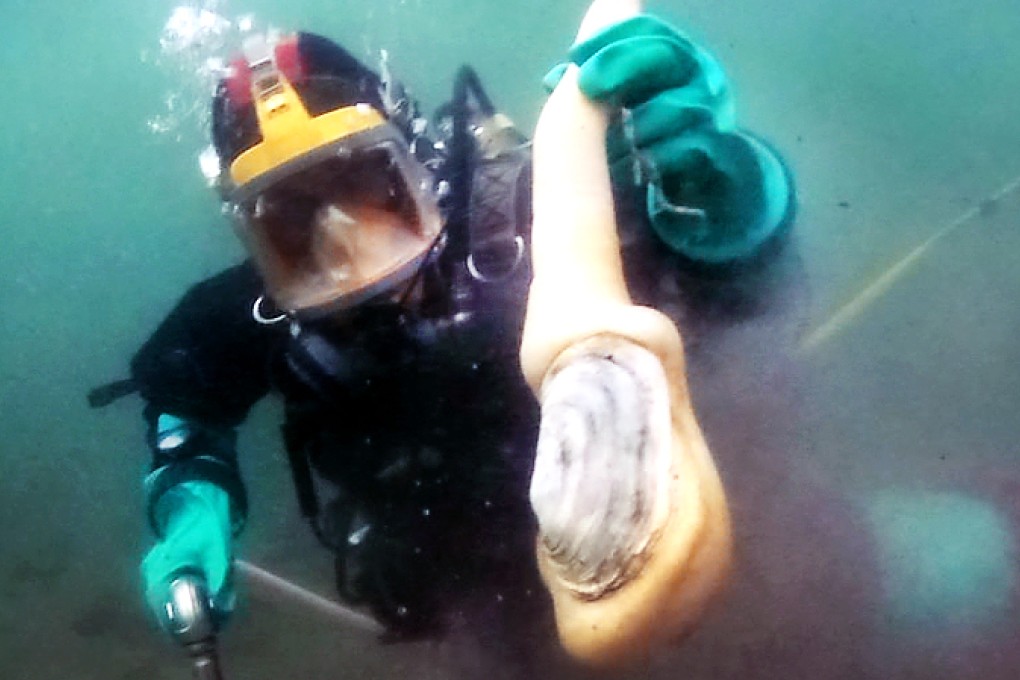Hong Kong ban on geoduck clams puts HK$306m Canadian industry in peril
SAR halted geoduck imports from entire province of British Columbia after detection of toxin, but the severity of the response has baffled harvesters

They can weigh more than 5kg, live more than 150 years and by common consensus resemble a certain part of a male horse’s anatomy.
The geoduck clam is also delicious and represents a C$50 million (HK$307 million) annual export industry for British Columbia.
That industry is now hanging in the balance, after Hong Kong banned all geoduck imports from the Canadian province on December 24, upon the detection of Paralytic Shellfish Poisoning (PSP) toxin in a sample of BC clams.
WATCH: How geoduck clams are harvested in BC waters
Hong Kong previously imported more than 70 per cent of BC’s entire geoduck harvest of 1.45 million kg per year. Most of that was shipped onwards to mainland China and elsewhere, but the ban covers all SAR imports, regardless of whether they were destined for local diners.